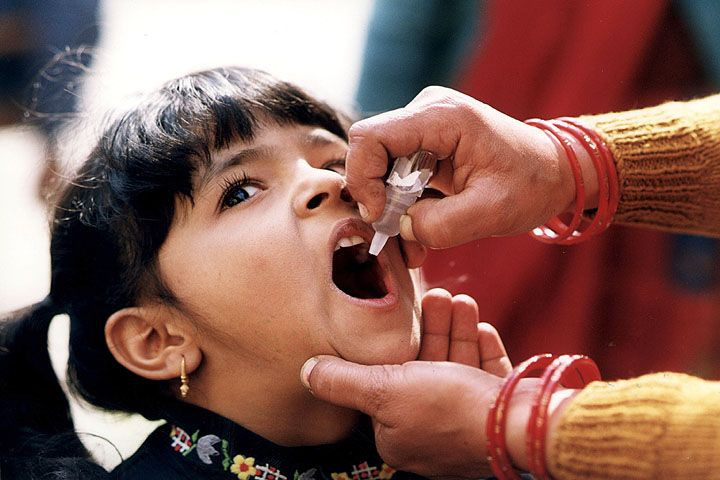Nigeria Once Accounted For More Than Half Of The World's Polio Cases, And Now They're Disease-Free: WHO

The campaign to fully eradicate the polio virus garnered a monumental victory this past Friday as the World Health Organization (WHO) officially removed the country of Nigeria from its polio-endemic list. It has been over a year since the last known natural case of polio (defined as wild poliovirus) in Nigeria occurred, though there was one case of polio in 2015 caused by a weakened vaccine-derived strain.
With the African nation's removal, there remains only two countries where natural cases of polio have been detected this year — Afghanistan and Pakistan.
“We Nigerians are proud today. With local innovation and national persistence, we have beaten polio. We know our vigilance and efforts must continue in order to keep Nigeria polio-free,” said Dr. Ado Muhammad, executive director of the National Primary Health Care Development Agency in Nigeria, in a statement released by the WHO.
Nigeria’s success story is especially impressive considering that the country once represented half the wild poliovirus (WPV) cases worldwide as late as 2012, according to the WHO. That year saw 223 cases, while 2015 has only seen 41 cases as of this September.
Since 1988, the concerted efforts of the internationally sponsored campaign, spearheaded by the Global Polio Eradication Initiative, have reduced the global prevalence of polio by more than 98 percent. Such an accomplishment is only possible because humans represent the sole natural host of poliovirus, and transmission between people can be interrupted by a cheap and easily administered (oral) vaccine, which is believed to confer lifelong immunity.
This month has seen a bevy of great news when it comes to polio, with the Global Commission for the Certification of Poliomyelitis Eradication (GCC) declaring on September 20th that wild poliovirus type 2 (WPV2), one of the three subspecies of polio, has been officially eradicated. The last known case of WPV2 occurred in 1999, and the cases of polio seen in the remaining endemic countries are believed to be caused by the WPV1 strain.
It will take another two years before Nigeria can begin the process of being declared officially polio-free, but should their status hold, it may mark the beginning of the end for one of the most devastating maladies ever to visit humankind.
“The removal of Nigeria from the list of polio-endemic countries is a major victory for Nigeria’s children,” said Anthony Lake, executive director of Unicef. “It is a testament to the commitment and dedication of the Government of Nigeria, local leaders, and frontline workers. And it is proof positive that if we work together in partnership to reach every community and immunize every child, we can finish the job of eradicating this evil disease everywhere, once and for all.”



























